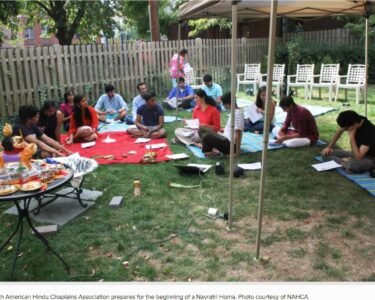Asian Americans are being denied admission because there are too many of them and they are ‘too good’
This column has often celebrated the success of the Indian diaspora. In a column in BusinessLinea few weeks ago, I talked about the various ways in which Indians are moving and shaking in America.
Even first and second generation Indian American children are doing well. In school, they generally excel in academics and the standardised tests, such as the SAT or the ACT. They almost always win prestigious national competitions in spelling and geography, and are actively involved in numerous after-school activities such as band, music, theatre, debates, quiz leagues, science competitions, robotics and the like.
Too successful
Indian children are so competitive that newly arriving families in Texas, California, New York, New Jersey and Illinois are scared to enrol their own children in local schools. A student client of mine approached me recently for advice about college admissions. He has a perfect SAT score in Math and Writing and a near perfect score in Reading. The school that he goes to — Plano Senior High — is so competitive that his class rank is 108 in a class of 900 students.
This kind of breakneck success among Indian high-school students in the past 15 years or so has begun to backfire. Colleges now are resorting to “reverse discrimination” and are beginning to deny admissions to Indian students because there are too many of them; and they are too good. This applies not just to Indians but Asians in general — that is, Chinese, Taiwanese, Filipinos and Koreans.
A report in the New York Times said that Asian students are routinely expected to get 150 points more on the SAT just to be considered on par with students of other native races when applying to top colleges such as Princeton or Yale. The so-called “Asian tax” has artificially trimmed the admission of Asian Americans to Ivy League schools to about 25 per cent.
Going after Harvard
Edward Blum, a billionaire now devoting his time to conservative causes, hates the idea that Asian American students are being discriminated against. Although not a lawyer, Blum hired super-smart lawyers and recruited disgruntled Asian students who were denied admission to go after the pinnacle of elite schools, Harvard.
In a lawsuit filed against Harvard — which the US Department of Justice joined — Blum claims that Harvard’s policies in artificially limiting incoming Asian American strength to 20-25 per cent of the total class is discriminatory.
Harvard, ever-mindful of protecting its highly secretive in-house deliberations during the admissions cycle, denies the charge. But a federal judge ordered Harvard to reveal its admissions policies. Fearing losses of up to $500 million in federal aid, Harvard reluctantly agreed, but not without caveats. The university invited the plaintiffs to its offices where they were allowed to examine select files, but couldn’t make photocopies of any documents. They were also made to leave their phones (which had cameras) outside the office.
The outcome of the case could well decide if there is any relief in sight for Indian American children. Generally, if Harvard admits fault and changes policy, the other Ivies will follow. This could be sweet music for the thousands of Asian American families currently being denied a chance in the so-called land of opportunity.
Read the rest @ https://bloncampus.thehindubusinessline.com/columns/world-view/when-indian-americans-success-hurts/article24154527.ece






